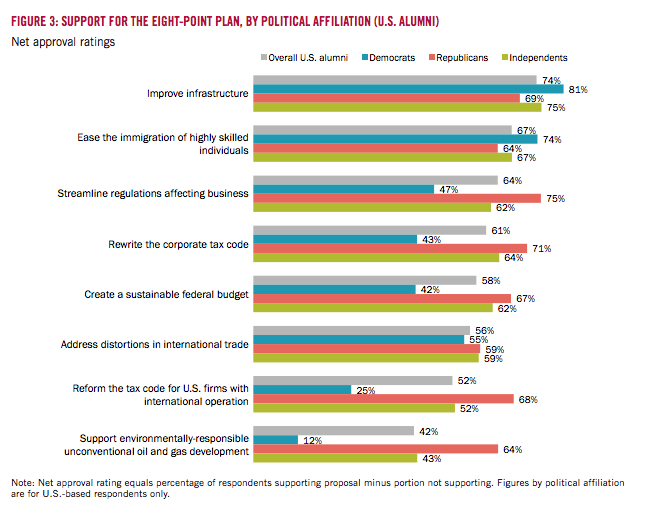How improved infrastructure could end America’s vicious cycle of poverty
When it comes to solving rising inequality in the US, fixing our crumbling infrastructure may be the solution.
“Lower income populations can’t get to jobs and so their incomes remain low,” Harvard Business School (HBS) Professor Rosabeth Moss Kanter told Yahoo Finance. “We have a vicious cycle of poverty, of disadvantage that comes from only being able to afford to live in certain places that are less desirable because they lack transportation.”
Kanter, who participated in HBS’ new study on competitiveness, added that lower-income populations—who can’t afford cars at the same rate as more affluent groups—are stuck.
“Mobility is opportunity,” she said. “If we want to fix the big income divide in America, if we want to help restore the middle class, we must focus on transportation.”
A record of reduced US infrastructure investment
The dire need to invest in and update transportation infrastructure illustrates one example of the US failure to “keep up,” as explained in the HBS report.
America’s public investment in transportation infrastructure is down from 2.2% of GDP in the 1960s to 1.6% today—less than in Europe and far less than in China.
Starting around 1980, when the middle class began to stagnate as a result of geopolitical and technological changes, instead of investing in areas like infrastructure, credit was extended. As the report outlines, the US instead expanded entitlements, increased public-sector employment and benefits, and cut taxes. And as the federal and state governments became overextended, public spending shifted from investing for the future to paying for the past—ultimately hurting development in infrastructure, research and education, and putting the US in a position behind other countries around the world.
Limited public resources and rising inequality added to this backdrop, increasing polarization and paralysis.

The promise of a boost
While the HBS study focused on corporate tax reform as the issue that could provide the most near-term benefit to society, Kanter said that infrastructure investment also has immediate benefit potential.
“There are a lot of immediate projects,” Kanter said. “There’s the application of technology, which can make a big difference.”
While putting in new roads or renovating LaGuardia Airport can take a long time, some projects have more immediate benefit, she added.
“The Miami Port tunnel is a wonderful project that—once it was ready to build—came in under budget and just about on time and didn’t take that long and has made a huge difference to traffic congestion to clearing off the streets of downtown Miami for economic development,” Kanter said.
Meanwhile, Kanter explained there is significant consensus for infrastructure reform. In the HBS survey of alumni, improving infrastructure got the highest approval rating across party lines.

Clinton’s infrastructure bank proposals “removes politics” from projects
Despite consensus, not much progress has been made with infrastructure investment in recent decades.
The reason? Political gridlock, according to Kanter.
Meanwhile, both presidential candidates—Donald Trump and Hillary Clinton—have rolled out ambitious proposals for infrastructure investment. Meanwhile, economists continue to call for a shift to fiscal policy, as monetary policy measures seem to be on their last legs.
Kanter explained that Secretary Clinton’s proposal for an infrastructure bank allows for loan guarantees and funding that remain separate from political squabbles.
“It does remove politics,” she said. “And that’s one of the big drawbacks in getting investors to invest in restoring and reinventing US infrastructure is political uncertainty.”
A lot of the consensus that has built around the need for infrastructure development has gotten hurt amid disagreements over specifics, including a choice between roads and mass transportation.
“Those are political issues because mass transportation affects urban populations,” Kanter said. “Many highways affect rural or ex-urban populations which have a different constituency.”
Kanter emphasized that if we can get past the politics, much can be done.
For more on the US competitiveness study, please see below:
Harvard economist never thought his new study would take him where it did
Harvard professor identifies the ‘worst nightmare’ in America right now
Harvard study singles out a game-changing economic opportunity: TAX REFORM
There’s a silver lining behind the dark clouds hanging over US businesses
Harvard Business Dean tells us what this huge 5-year study is all about
Harvard Business Dean: The post-crisis monetary policy is ‘running out of runway’
Some companies have taken the next obvious step to filling jobs that sit vacant
There’s one piece of tax reform that would have a real impact with little resistance
America’s outdated education system isn’t producing the workers companies need
Revitalizing small businesses is key to drive America’s economic growth